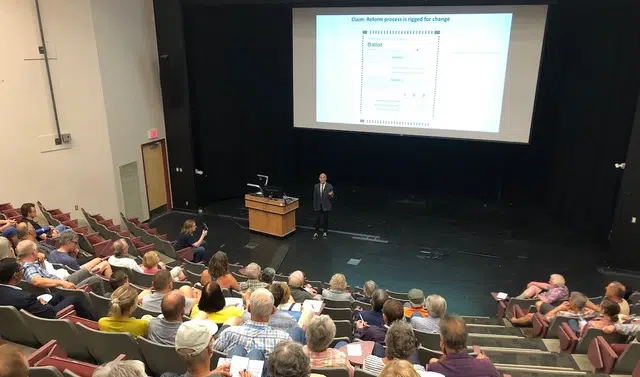
Hand-picking facts to support proportional representation
KAMLOOPS — I ATTENDED THE PRESENTATION on Wednesday night by Dr. Denis Pilon of York University on the upcoming referendum on changes to the B.C. electoral system.
He’s a very good speaker and explained his arguments in favour of proportional representation by reviewing points being argued by the pros and cons as he understands them. Then, he took each point and dissected it using examples of proportional representation in other countries.
Being a proponent of PR, of course, his choice of facts supported his side of the argument. As his presentation was sponsored by Fair Vote Kamloops, I’m guessing that for the most part he was preaching to the choir.
I was only slightly annoyed at his frequent mimickry, in a subtly mocking tone, of those who defend First Past the Post. Focusing on the substance of his arguments, I found them lacking.


